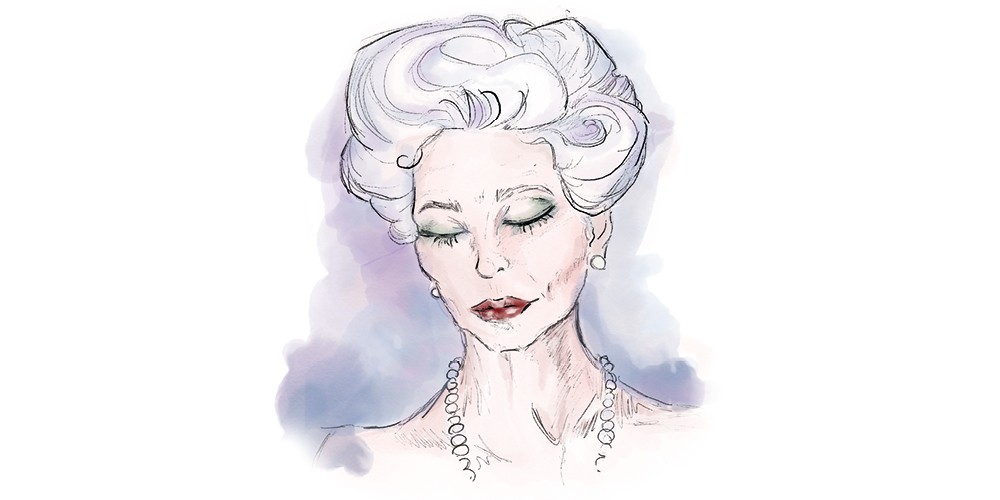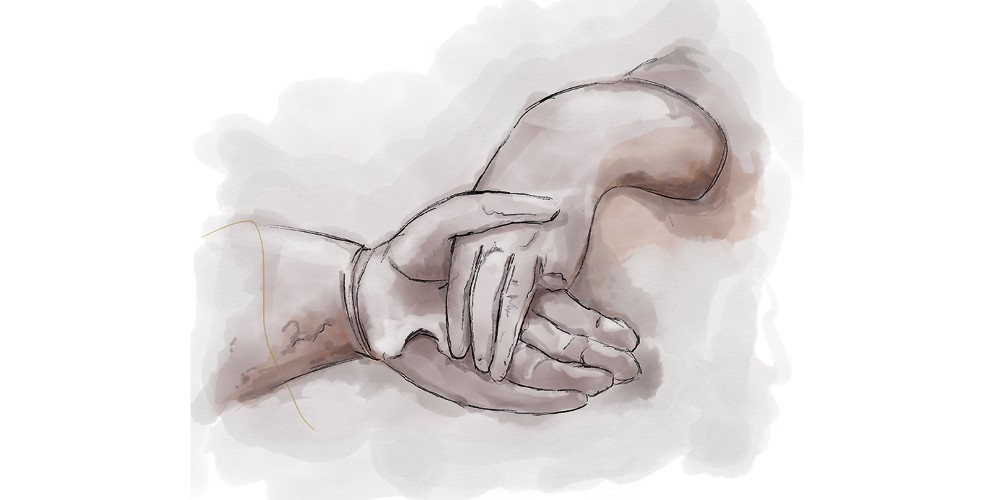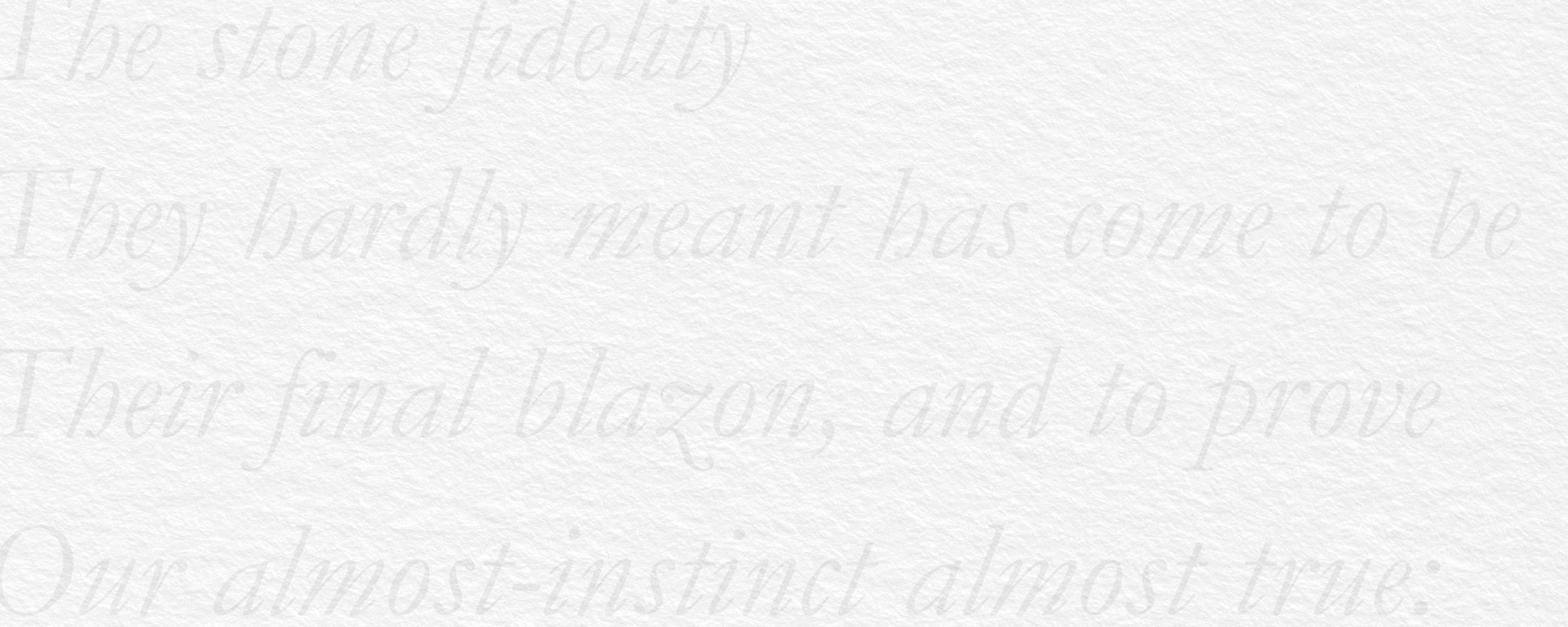Literature shapes our understanding of love, from Romeo and Juliet to over-quoted phrases before Valentine’s Day. It continues to influence the way we relate to the complex emotions and quests surrounding love. Literature experts Prof. James Corby and Prof. Adrian Grima (University of Malta) share their thoughts about the cornerstones of the literature of love with Daiva Repeckaite.
Words in different languages simultaneously disperse into a warm summer night, bounce off the walls of Fort St Elmo, and gently vibrate in the fortification’s stones, ears, and memories. Local and visiting writers meet at the Malta Mediterranean Literature Festival and, as has become customary, translate one another’s work to read aloud to the festival’s multicultural audience. Bilingual Maltese poet Antoine Cassar takes the stage to speak about how he used to mix various languages in his own poetry before gradually shedding them in favour of Maltese, which for him was the language of familial love — and of domestic violence.
Malta is where English literary experiments, powerful influences from Italy, along with local quests for making sense of love and community come together. Below are two short snippets reflecting two expert analyses on selected periods in Maltese and English literature.
On Maltese Literature
‘Up until Independence, and partly even afterwards, Maltese male-dominated, heterosexual love poetry was conditioned by the norms and discourse imposed by the Catholic Church. The narrative of the so-called “traditional nuclear family” meant that many everyday experiences never made their way into [Malta’s] traditional literature,’ says Maltese literature Professor Adrian Grima.
‘The stylised Maltese nuclear family constructed by Dun Karm and other romantic poets and novelists has survived the social and cultural changes brought about by World War II and Independence,’ Grima asserted in his 2006 analysis of familial love in literature in a paper titled “‘Fashioning’ the Maltese Family”. In his view, the Maltese literary tradition takes nuclear family for granted, but only in its idealised form. ‘The patriarchal father solidly at the helm; the dedicated but ultimately submissive mother tied very much to the home (she is the family’s ‘unsung hero‛ and its ‘moral pillar‛) with lively but ultimately submissive children.’
For starters, marriages in traditional Maltese society lacked affection.
‘The influence of Italian romanticism looms large over our literature,’ Grima points out. But he is quick to add, ‘When we read their works, we often forget that they are constructing a narrative and not documenting sociological phenomena.’ He cites research by historians like Frans Ciappara to show that the Maltese family in the second half of the 18th century was worlds apart from its romantic representation. For starters, marriages in traditional Maltese society lacked affection. ‘Ciappara suggests that there was little time for the couple to be by themselves because the community was closely involved in the family’s life and consumed much of their time. And the structure of their houses made sexual privacy practically impossible. Marriage was centred on having children, not love,’ Grima concludes.
After Malta acquired Independence and gradually shed the restraints of religious conservatism, writing about love and family got a breath of fresh air as well. ‘The post-national (or cosmopolitan) generation that started to take over in the 1990s has rewritten, and continues to rewrite, the national literary narrative,’ Grima says. ‘For example, in his prize-winning cycle of poems called Erbgħin Jum (2017), Antoine Cassar took the strains of love within the (idealised Maltese) family to a whole new level with his heart-wrenching account of domestic strife and violence. This collection, that has touched (and shocked) many readers to the core, challenges the taboos surrounding representations of the family in Maltese poetry.’
Grima remarked that rebellious female characters in prominent works of Maltese post-Independence writers have a hard time shaking off protective paternalistic relationships. In numerous stories, escaping an oppressive family results in creating another one.
Towards the end of the last century, Maltese literature opened up to more diverse voices, including female authors. ‘The crucial moment, I think, was the publication of Maria Grech Ganado’s (belated) first collection of poetry in Maltese, Iżda Mhux Biss in 1999,’ Grima continues. ‘In fiction, contemporary female writers like Clare Azzopardi, the Maltese-Australian anglophone writer Lou Drofenik, and more recently Nadia Mifsud in her short debut novel, are amongst those who are questioning the model. But they are by no means the only ones.’
Which Maltese writer should we add to our lovely reading list? ‘Immanuel Mifsud’s alarmingly beautiful In the Name of the Father (and of the Son) (2010), has already become a classic, not least because of the way it bravely straddles deep emotions, memory, psychoanalytical and feminist discourse, and literary genres. In many ways, this audacious work has redesigned not only the narrative of familial love but also Maltese literature itself,’ Adrian Grima recommends.

She still bends over to paint her toenails.
She still wants to wear lace under her clothes,
to redden her lips, to apply green eye shadow.
She still tempts her husband at night – her husband
who’s left, forgetting his suitcases behind.
Every morning she wakes up singing Casta Diva.
— Immanuel Mifsud, At Dar Sawra (home for the elderly)
On English Literature
‘Love is incredibly hard to define. It is a supremely capacious and accommodating concept. It can involve intoxicating lust, deep care for another’s wellbeing, devotion, and so on, without being reducible to any of these things individually. It can be possessive, selfless, selfish, jealous, transgressive, unrequited, painful, joyous and – perhaps – pure. It can be felt for lovers, family members, friends, gods, even one’s country,’ outlined Prof. James Corby while discussing love in 20th-century English literature.
His observation is that during the previous century a more sceptical view of love developed. As Jeanette Winterson says somewhat deflatingly in Written on the Body, ‘“I love you” is always a quotation.’
The deconstruction of love was, in part, inspired by psychoanalysis. ‘This sort of sophisticated understanding of love led to a default expectation of ulteriority. In other words, it discouraged taking love at face value — there must be something else going on,’ Corby summarises. ‘“I love you” no longer meant what it seemed to mean,’ he states. Instead, read psychoanalytically, the phrase expressed something else — a desire for security, wholeness, or cultural conformity.
And yet, unsurprisingly, a more straightforward and naive conception of love persisted as a powerful force in the cultural imaginary. ‘Simon May, in his book Love: A History, attributes this to love gradually coming to replace religion as the organising principle of our lives. As he points out, idealised conceptions of love tend to be underpinned by beliefs that mirror the way major religions view God and devotional practice — love is unconditional, eternal, and selfless,’ explained Corby. ‘As the sway of religion declined, and as other age-old communal certainties came to be usurped by widespread individualism, love — an ideal conception of love as absolute and redemptive — became ever more important as a source of comfort, security, and identity.’
“I love you” no longer meant what it seemed to mean.
He admits personally favouring the naive variety over the suspicious view that love is always about something other than love. ‘Let’s face it, we have enough to be cynical about,’ he points out. ‘Ironically, this view is supported by some of the most clear-sighted and sceptical writers of the twentieth century. ‘Love loves to love love,’ writes James Joyce in Ulysses. Samuel Beckett — whose work is synonymous with bleakness and despair — often portrays love’s capacity to endure and gives some sort of meaning to an otherwise meaningless life (the French philosopher Alain Badiou remarks on this in his book In Praise of Love). The playwright Sarah Kane surprised many when she claimed that Blasted — a play that shocked the world with sordid scenes of rape and infant necrophagia — was all about love, love that endures the worst and still survives.’
This tension between the sceptical and naive view of love is brilliantly dramatised in an experience recounted in a poem by the famously pessimistic writer, Philip Larkin. The poem describes a visit he made with his girlfriend, Monica Jones, to Chichester Cathedral.
Viewing the ancient carved effigies of a husband and wife on a grave, he notices, ‘with a sharp tender shock’, that the man’s left hand is withdrawn from its gauntlet and is reaching over and holding the hand of the female statue. Corby says, ‘His immediate response is to try, rather sceptically, to rationalise and downplay the scene: “They would not think to lie so long. / Such faithfulness in effigy / Was just a detail friends would see”. In the final stanza, however, he works his way through marvellously hedged and equivocating language to arrive at a breathtaking final line that, in my view, vindicates the naive conception of love:

The stone fidelity
They hardly meant has come to be
Their final blazon, and to prove
Our almost-instinct almost true:
What will survive of us is love.’
Further reading:
James Corby (2012). ‘Blake, Yeats, Larkin: nihilism and the indifferent consolation of Post-Romanticism, New Questions on Literary Criticism.’ Istanbul: DAKAM Publishing, 2012. 159-169 [available on OAR@UM].
Adrian Grima, ‘Fashioning’ the Maltese Family’, The Family, Law, Religion and Society in the European Union and Malta, Ed. Peter G. Xuereb. Malta: EDRC, University of Malta, 2006.





Comments are closed for this article!